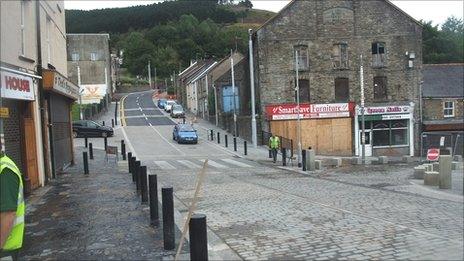Blaenau Gwent food bank taps into local good will
- Published
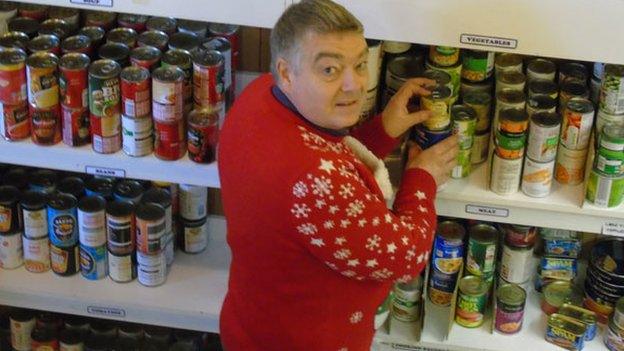
Martin Abel manages a network of 40 volunteers
Blaenau Gwent has long been a "go-to" place for people looking at poverty in Wales.
Another set of figures last month showed it had more areas in the most deprived 10% in Wales than any other county.
Despite the ambitious £300 million transformation taking place on the old steelworks site in Ebbw Vale, external, the good times seem a little way off for some.
And six years ago it received an unwanted accolade when it become home to The Trussell Trust's first food bank in Wales.
It runs twice a week at the town's Festival Church. It is a short drive from a retail park - the site of the National Garden Festival 22 years ago - a regeneration stimulant awarded to Ebbw Vale which attracted two million visitors to land reclaimed from a former hot steel mill.
The figures may show poverty, but they do not quite show the good will which exists here. This is a community that wants to help those who are struggling.
"People have been terrific and the schools, churches and local businesses have been very generous," says Martin Abel, who runs the food bank.
"We had a lady with a buggy in Tesco the other day when we were down there at the collection point handing out shopping lists of what we need.
"She said 'yes, you were there for me when I needed you'. She was really excited to be able to help."
Since last Christmas, nearly 3,500 people have used the food bank - with around 1,500 vouchers presented.

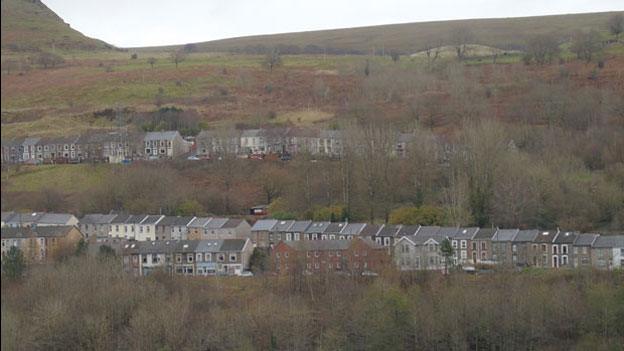
Blaenau Gwent is traditionally one of the most economically deprived counties of Wales but regeneration is happening
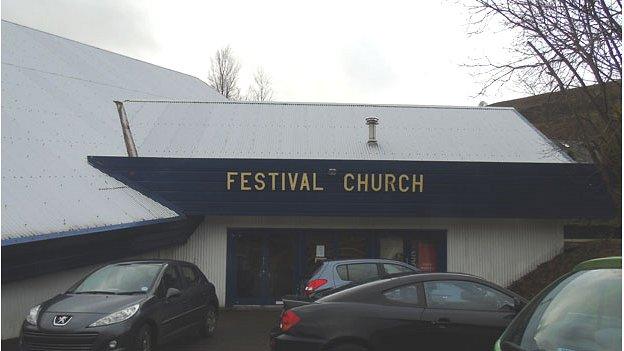
The food bank is coordinated from the Festival Church
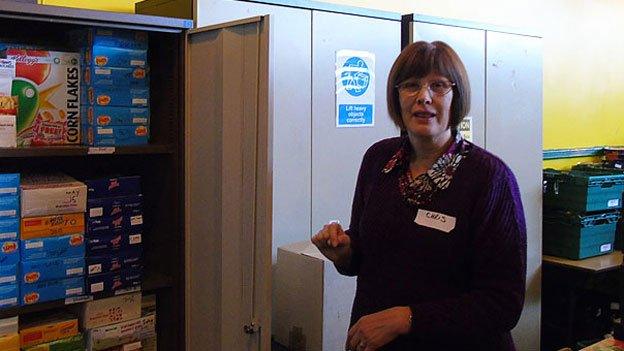
Volunteer Chris Rees has been with the food bank since it opened in 2008
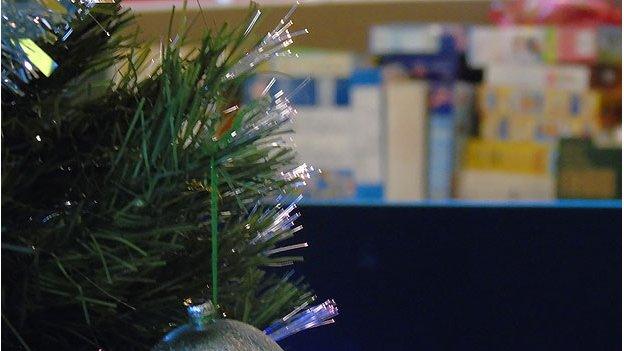
The pre-Christmas period has seen a flood of donations
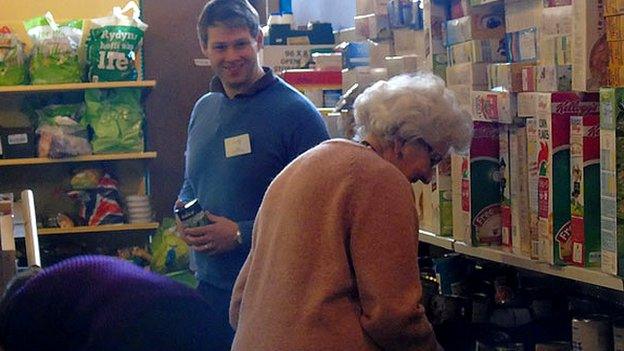
The volunteers are involved in stock control and sorting out food in order of sell-by dates
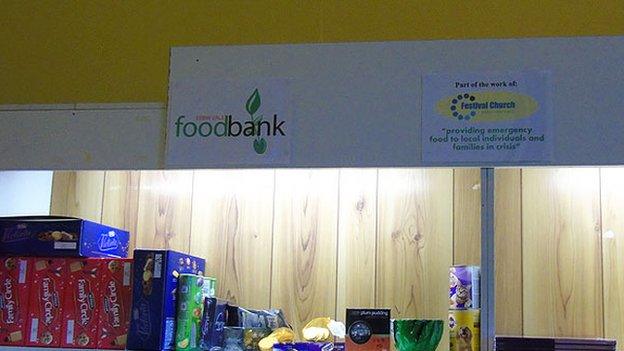
There is also pet food and, as it is Christmas, extra treats and presents for children
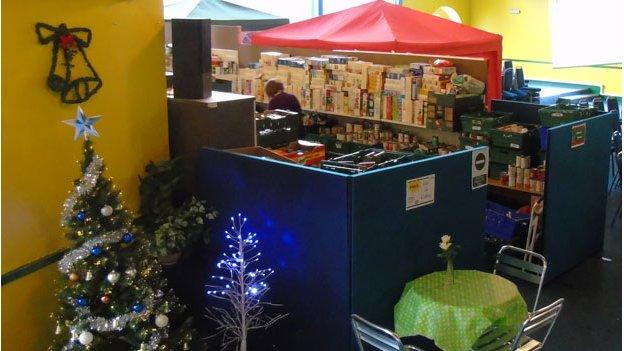
The food bank also provides tea and coffee and holds Citizens Advice sessions

As well as providing a supply of non-perishable food, there are also toiletries, pet food and as it is the festive season, some presents have been donated for children.
There is a team of 40 volunteers, which includes some who have used the food bank themselves and are returning the favour.
Visitors this morning included individuals with vouchers provided by job centres, GPs, housing associations or other agencies.
The church also delivers to satellite distribution centres in Abertillery, Beaufort, Nantyglo and Tredegar.
"If they can't afford to eat, they'll find it difficult to get here," explains Mr Abel.
One caller is Detective Constable Paul Pritchard, who is 18 months into working on a programme to keep persistent offenders out of trouble.
As well as helping to find housing, drug rehabilitation and work for ex-prisoners, he says the food bank is a vital piece in the jigsaw.
"One of the basics when they come out, before their benefits are sorted out, is food on the table - and this place helps with that. A lot of offenders will steal to eat or even steal food."
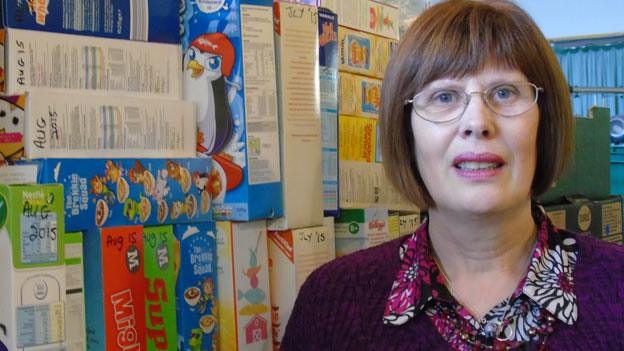
Chris Rees said they also give presentations on the food bank to local schools
Chris Rees, 63, is the longest serving volunteer and remembers when the food bank started in a tent.
A retired nurse specialist, she got involved at the start through her church in Tredegar.
Mrs Rees shows me one of the stock rooms. "We've more spaghetti than Italy, more tea than Ceylon," she says.
"We mark all the food that comes in to make sure the sell-by date is clear and we can manage it so it all gets used.
"People can be embarrassed when they come here. You see them standing outside. But it can be people who were once well off but circumstances change and they've lost their job and can't manage."
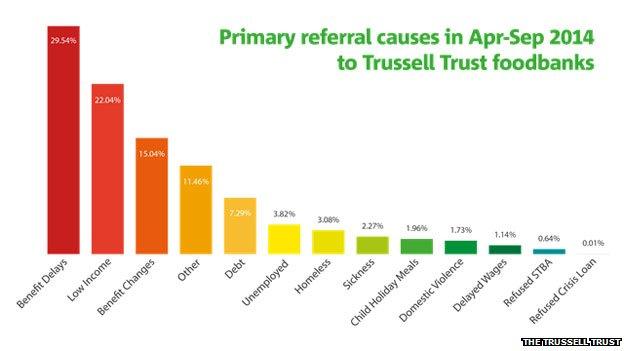
The number being referred while on low incomes is also increasing in the UK, says the Trussell Trust
Mr Abel said benefit delays and benefit sanctions - those who have money stopped for missing appointments or other reasons - are two of the biggest issues.
The Department of Works and Pensions (DWP) said there is "no convincing link" between welfare reforms and increased use of food banks, with the vast majority of benefits processed on time.
Mr Abel insists food parcels are not just hand-outs.
"All food bank vouchers are numbered and people are allowed up to three so we notice if a pattern is emerging. We put them in touch with agencies and find help whether it's with budgeting or whatever."
Arriving at the food bank, four-week-old daughter in arms, is Stacey.
The 30-year-old last came here a year ago and is now waiting for her benefits to be adjusted after the baby's arrival.
She was given a voucher by her housing association.
"I just want some tins of stuff," says Stacey.
"I'm on my own with three kids and with Christmas coming, I'm just struggling a bit.
'So kind'
"With the cold weather here, what's more important? I have to feed them but also you need your gas and electric for the kids.
"A lot of people are finding it hard to put food on the table. They've had harvest festivals at my son's school collecting for the food bank and when I've enough I've always made sure I put something in."
"They're brilliant here, so kind."
She leaves with food and an extra bag of gifts she wasn't expecting. Maybe Christmas is a little brighter.
- Published8 December 2014
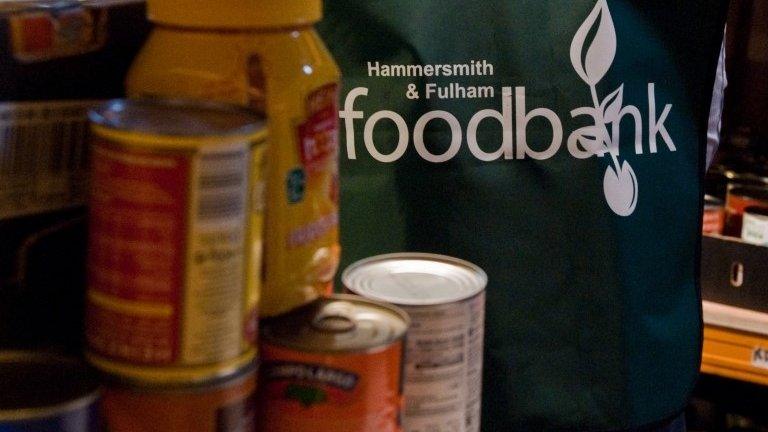
- Published29 June 2013
- Published20 March 2013
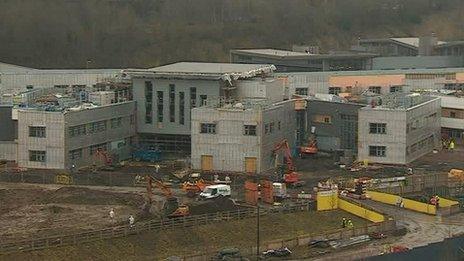
- Published14 December 2011
